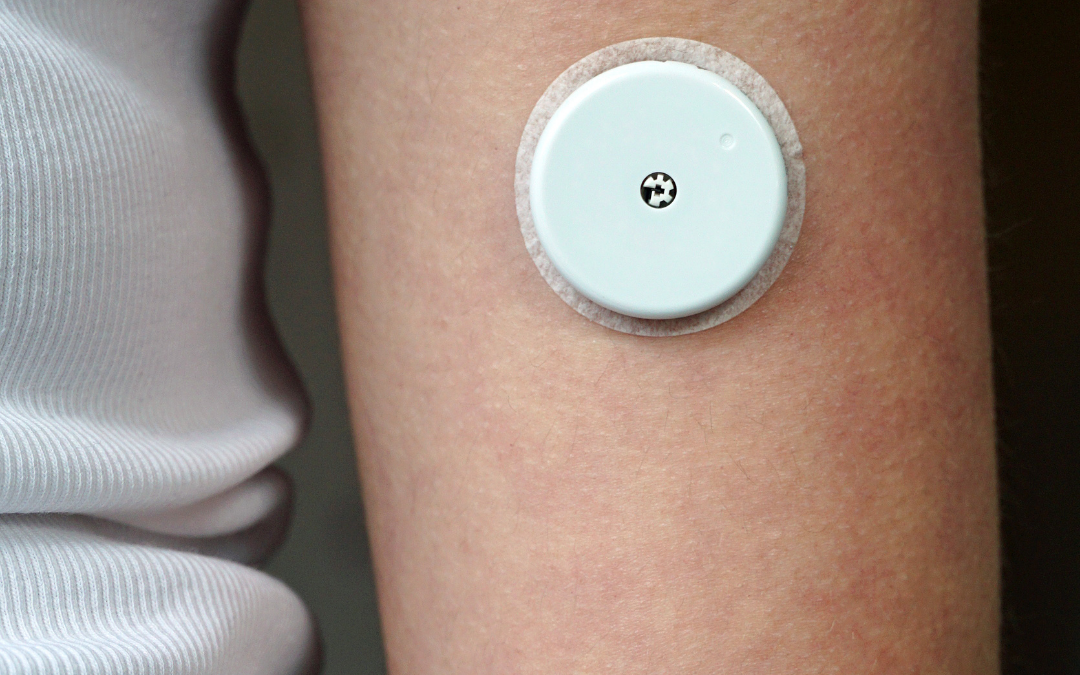
Related Posts

YOGA TO REGULATE THE AUTONOMIC NERVOUS SYSTEM
Related PostsYoga,...

METABOLIC DYSFUNCTION AND THE ATHEROGENIC LIPID PROFILE
Related PostsWelcome to...

THIS IS YOUR HEART WITH METABOLIC DYSFUNCTION
Related PostsWelcome to...

METABOLIC HEALTH IS MORE IMPORTANT THAN WEIGHT LOSS
Related PostsWelcome to...

SHOULD YOU WEAR A CONTINUOUS GLUCOSE MONITOR?
Related Posts Many of...

IS HEART DISEASE SIMPLY A FAT HEART?
Related PostsThe most...

IS ALCOHOL A HEALTH FOOD? ALCOHOL AND YOUR HEART
Welcome to a new series on the CFC blog on metabolic health. Metabolism is the process by which the body converts what we eat and drink and stored fat into energy. This energy keeps our cells functioning and our muscles working. Metabolic dysfunction contributes to just about all forms of chronic heart disease and can show itself as hypertension, elevated blood glucose levels, elevated waist circumference, high triglycerides and LDL cholesterol, and low HDL cholesterol. Left untreated, these conditions can become more severe, leading to a diagnosis of metabolic syndrome. In this series, I’ll discuss the causes and impacts of poor metabolic health, testing and treatment, and lifestyle changes you can make at home. Get more lifestyle and health news in your inbox: sign up for the CFC newsletter.
I’m sitting here sipping a glass of wine and contemplating the absurd notion that alcohol is a health food.
Many “health experts” trip all over themselves apologizing for alcohol. “Don’t you know that moderate drinkers have fewer heart attacks?” And, after all, the healthy Mediterranean diet includes wine. It’s almost as if there’s a fear that we can’t expect people to adopt a dietary change if it excludes alcohol. That fear may be well founded; many people love to drink.
The enthusiasm for alcohol among “health experts” stems from epidemiologic studies that show risks of alcohol consumption are high in heavy drinkers, as you would expect, but lower in moderate drinkers than in abstainers. This “J-shaped curve” addresses the risk of myocardial infarction, cardiac mortality, and all-cause mortality related to the amount of alcohol consumption.
But epidemiologic studies are notoriously unreliable. People don’t report accurately how much they drink. Epidemiologic studies are unavoidably polluted by confounders that bias outcomes. Most people would agree that drinkers and nondrinkers have differences in diet, lifestyle, demographics, and attitudes that are far more complex than just their drinking habits.
The J-shaped curve
There have been a remarkable number of these epidemiologic alcohol studies, and they keep coming. The more contemporary studies have done a better job controlling for things like differentiating former drinkers from non-drinkers, stratifying for age, and measuring alcohol consumption over time. The J-shaped curve in more recent studies looks flatter or nonexistent. The notion of benefit from mild to moderate alcohol use is slowly being debunked. In medical research the question has shifted from “Is a moderate amount of alcohol good for you?” to “Is any amount of alcohol safe?”
What could possibly be good about regularly ingesting an addictive, known, neuro-, cardiac, and liver toxin?
Here are many of the supposed redeeming qualities of alcohol.
A source of resveratrol? No, this is grasping at straws. Resveratrol is an antioxidant found in some fruits. But the amount in red wine is trivial and there is none in beer or liquor.
Increased HDL cholesterol? Doubt it. This is likely an example of a misguided use of a surrogate endpoint. Moderate alcohol intake raises HDL cholesterol levels, but it also increases LDL cholesterol and, more importantly, coronary artery disease-provoking small LDL particles. Alcohol does not improve the atherogenic lipid profile characterized by low HDL cholesterol levels. Plenty of medications, such as CETP inhibitors, have increased HDL cholesterol levels but not improved outcomes, so it is optimistic and unproven to expect that the effect of alcohol on HDL cholesterol is beneficial.
Reduced blood clotting? Now we know better. Restoring normal clotting by correcting an omega-3 deficiency is healthy, but creating a new clotting disorder is a problem. We have stopped giving people ASA (aspirin) to prevent heart disease for this reason.
A hormetic stress? There’s plenty of evidence that significant, but not fatal, physiologic stress builds resilience. That’s how exercise, fasting, and sauna work. It’s possible that alcohol provides some hormetic stress, but we don’t encourage the ingestion of other toxins like lead, mercury, or air pollution to provide hormetic stress.
Alcohol is fun; it has evolutionary benefits by facilitating social cooperation? There is a good argument to be made that the benefit of social bonding counterbalances many of the negative aspects of alcohol. In modern use, the amount, pattern, social aspects, and demographics of alcohol use are complex and changing. For fascinating discussions of these issues I recommend “America has a drinking problem” by Kate Julian and Drunk: How we sipped, danced, and stumbled our way to civilization by Edward Slingerland.
Changing our relationship with alcohol
The epidemiologic view of alcohol smacks of nutritionism, parsing the science to support a preconception of good or evil. It’s best if you can determine for yourself whether alcohol, or what amount of alcohol, is a benefit or hindrance to your own health. Then you can balance the risks and rewards in a mindful way.
For half of Americans, alcohol is not an issue. They either don’t drink or drink infrequently. On the other hand, 10% of people are responsible for the vast majority of alcohol consumed. The amount this minority drinks is mind-bogglingly high and clearly pathologic.
That leaves 40% of people in the category of light to moderate regular drinkers. For these people, the risks and benefits of alcohol will be related to their individual circumstances.
Do you need to reduce alcohol intake?
These several questions will help you to identify whether the “social well-being” benefits of moderate alcohol consumption on your heart are negated by other health effects.
- Do I have a weakened heart?
Full stop. If you have a low EF, cardiomyopathy, or your doctor has used other terms to communicate that you have a weak heart condition, do not drink alcohol. You are likely vulnerable to the toxic effects of alcohol on heart function even at low doses.
- Does alcohol affect my sleep?
Many people have a nightcap to relieve stress and in hopes of sleeping better. While alcohol has a hypnotic effect, it impairs REM and fragments sleep. Disturbed sleep aggravates dementia, metabolic dysfunction, and weight gain. Alcohol may be the cause if you have morning grogginess, insomnia, or wake up to pee a lot.
If you use a sleep tracking device, you can see the effects of alcohol on sleep architecture. Look for alcohol-induced reduction in heart rate variability, increased minimum heart rate, and rising heart rate after going to sleep See if these paramaters improve when you abstain from alcohol for 3-4 hours before bedtime.
If you have sleep apnea, either central or obstructive, test to see if the amount or timing of alcohol ingestion aggravates it. There is a strong correlation between alcohol use and sleep apnea, increased appetite, weight gain, and metabolic syndrome.
- Is alcohol making it harder for me to reduce visceral fat?
Alcohol promotes fat storage and reduces fat oxidation for fuel.
Your body has no place to store alcohol, so it takes over your metabolic machinery. There is no glucose burning and no fat burning while alcohol is around. This is metabolic dysfunction, and it happens without increasing insulin or glucose when you consume alcohol. (Interestingly, high fructose corn syrup, found in many processed foods, does the same thing.)
Alcohol also adds a lot of calories to your diet.
- Light beers: ~100 calories and 5 grams of carbs per 12 oz serving
- Regular beers: ~150 calories and 10.5 grams of carbs per 12 oz
- IPAs: ~240 calories and 22 grams of carbs per 12 oz
- Dry red wines: 150 calories and 4 grams of carbs per 5 oz
- Dry white wines: 125 calories and 3 grams of carbs per 5 oz
- Dry sparkling wine: 110 calories and 2 grams of carbs per 5 oz
- Spirits such as vodka, gin, whiskey, rum, and tequila: close to 95 calories and 0 grams of carbs per fluid ounce
The association of alcohol intake to metabolic syndrome is strong when your intake is more than moderate. If you have metabolic dysfunction, you may have an easier time improving it if you try reducing alcohol, even from moderate levels.
Think of alcohol as a processed food with little nutritional value. It contains only empty calories, with no protein, fiber, and few micronutrients. If your diet is otherwise very low in processed food, maybe you can tolerate some alcohol calories. But if you are stuck trying to reduce your waist circumference and your HbA1c, try cutting back the alcohol and see if that helps.
- Is alcohol causing fat accumulation in my liver?
You can get a hint whether alcohol is accumulating in your liver if ALT and AST enzyme levels on a comprehensive metabolic panel are in the higher part of the normal range, and especially if your AST is higher than ALT. If ALT or AST is over 25, try cutting back on the alcohol and repeat the test to document improvement.
- Does alcohol raise my blood pressure?
Alcohol stimulates the sympathetic nervous system. If your BP is up, cut back the alcohol and see if it helps.
- Does alcohol aggravate my atrial fibrillation?
People often report that alcohol is the most likely trigger for an episode of atrial fibrillation. Moderate drinkers with paroxysms of atrial fibrillation will be twice as likely to be atrial fibrillation-free if they cut back severely or don’t drink at all. Moderate drinkers who have had an ablation are also more likely to stay in normal rhythm longer when they reduce alcohol on average by 50%. Alcohol does not always provoke atrial fibrillation, but it is common enough that you should assess your response to reduced alcohol.
- Is alcohol causing me to have leaky gut?
Intestinal permeability, or “leaky gut,” is common in people with heart disease. It is a source of chronic inflammation and antigen presentation to the immune system that perpetuates autoimmune problems. Signs include gas, bloating, changes in bowel habits, heartburn, and food sensitivities. Alcohol is a direct toxin to the intestinal lining, and it damages the intestinal microbiome. An elimination-reintroduction diet, including alcohol elimination, is useful with unexplained inflammation or suspected autoimmune issues. Leaky gut can be improved by eliminating irritating foods and toxins and adding probiotics and digestive enzymes.
- Am I concerned about increased risk of dementia?
Prior epidemiologic studies haven’t shown much impact of moderate alcohol on memory problems, but recent studies suggest any amount of alcohol is hard on the brain. MRI scans show loss of brain matter even with low amounts of alcohol use.
The combination of metabolic dysfunction and alcohol use is even harder on cognitive function and that is a good reason to improve both of these issues with diet and lifestyle changes.
Don’t drink if you have the “Alzheimer’s gene.” The APOE4 gene variant increases the risk of dementia and heart disease, especially with use of alcohol and when metabolic dysfunction is present. When not provoked by alcohol or metabolic dysfunction, APOE4 is not such a problem. Get tested for this gene if you have a family history of dementia.
- Do I have SNPs, genetic variants, that make alcohol harder on me?
In addition to the APOE4 variant, there are other genetic variants that affect the speed at which alcohol is converted to acetaldehyde by the alcohol dehydrogenase enzyme. There are also variants that affect the speed at which acetaldehyde is metabolized to acetyl CoA. These genetic variants affect how alcohol makes you feel, as well as how long the toxic and carcinogenic effects of acetaldehyde will linger in your body. Your family history of alcohol-related problems and tolerance to alcohol can help you to set expectations about your response to moderate alcohol.
- Am I at risk of alcohol use disorder?
Moderate drinking can progress to problematic drinking, including alcohol use disorder or alcohol dependence. Keep in touch with how alcohol use may be affecting your relationships, work, and mood. You can find resources for alcohol dependence here.
- Should I take supplements if I drink alcohol?
Metabolism of alcohol depletes B vitamins, particularly thiamine (B1). Take a good quality multivitamin and magnesium supplement if you drink moderately.
Metabolism of alcohol to acetaldehyde, and acetaldehyde to acetyl CoA, both generate NADH at the expense of NAD+. NAD+ is essential for energy metabolism. It is also reduced by aging, stress, and chronic heart disease. Fasting and exercise increase NAD+. You can also supplement with nicotinamide riboside (NR), which is an NAD+ precursor.
The oxidative stress induced by alcohol metabolism causes depletion of the body’s intrinsic antioxidant, glutathione (GSH). You can supplement with liposomal glutathione or the GSH precursors alpha lipoic acid (ALA) and N acetyl cysteine (NAC).
NAD+ and GSH support are theoretically beneficial, but only you can know if you feel better taking them.
Alcohol messes with the microbiome (even without leaky gut), so probiotics may be helpful.
How can I drink mindfully?
Even if your body tolerates alcohol, it is still important to drink mindfully.
If you need to reduce your moderate alcohol consumption, ask yourself, “Is drinking alcohol regularly something I really enjoy, or is it just a habit?”
To reduce mindless alcohol consumption, start by making it less available. Don’t keep it at home.
Then make new habits. One idea is to substitute mineral water for alcohol. We like to use a SodaStream with added liquid trace minerals and some flavoring like bitters.
Be sure to tell friends and family who can support your effort of forming new habits.
Schedule periods of abstinence. Our monthly community fasts are a great way to schedule a few alcohol-free days supported by like-minded folks.
Alcohol use may come along with some health compromises. How much compromise will depend on how much resilience you have, how nutrient dense your diet is, how active you are, and how metabolically healthy you are.
Measure the degree of compromise by assessing how alcohol is affecting your health. Be honest with yourself if alcohol disturbs your sleep, aggravates atrial fibrillation or blood pressure, or causes metabolic dysfunction, or if drinking could cause other long-term health problems.
There is benefit to social bonding, and sharing food and alcohol with family and friends can be rewarding. Drinking is also fun. But alcohol is like white bread; it’s not a health food, so enjoy it with eyes wide open.
